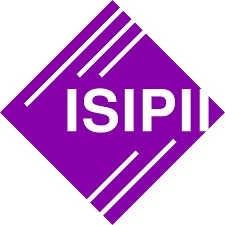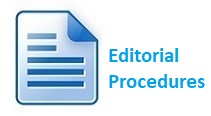Literasi informasi remaja pengguna perpustakaan di era pandemi Covid-19
Abstract
Information literacy is one of the essential skills that society must possess, especially teenagers as students who need information for learning and as part of society who need information in general. It is expected that teenagers can choose and select the information they need from these diverse needs. The Covid-19 pandemic, which has hampered several activities, has limited the youth in developing information literacy skills, both through the library as a service provider of the development of information literacy and digitally, which still needs to be fully understood by them. This study aimed to find out information literacy of young library users during the Covid-19 pandemic era, starting from what programs were appropriate and could be given to students, especially those produced by libraries, and to find out the impact they had on teenagers. This study used a literature review with a type of narrative literature review. The program that the library could provide to students under normal circumstances or during the current pandemic was a literacy movement that would make them accustomed to interacting with various kinds of information, one of which was related to the Covid-19 pandemic. The impact of the literacy movement program in the library is that young library users can have information literacy skills, making them more information literate both for general knowledge and for learning as students.
Keywords
Full Text:
PDFReferences
Awaludin, A. (2020). Perpustakaan digital: Solusi membaca di masa pandemi. Retrieved from https://www.dpk.bantenprov.go.id/Layanan/topic/289
Batubara, A. K. (2015). Literasi informasi di perpustakaan. Jurnal Iqra’: Jurnal Perpustakaan Dan Informasi, 9(1), 43–56. https://doi.org/10.30829/iqra.v9i1.67
Fadhli, R. (2021). Implementasi kompetensi pembelajaran sepanjang hayat melalui program literasi di perpustakaan sekolah. Jurnal Kajian Informasi & Perpustakaan, 9(1), 19–38. https://doi.org/10.24198/jkip.v9i1.27000
Ferrari, R. (2015). Writing narrative style literature reviews. The European Medical Writers, 24(4), 230–235. https://doi.org/10.1179/2047480615Z.000000000329
Fikri, O. M., & Sarah, M. S. (2022). Kegiatan preservasi di pustakalana children’s library. Informatio: Journal of Library and Information Science, 2(1), 1–18. https://doi.org/10.24198/inf.v2i1.36060
Fitri, R. N., & Prasetyawan, Y. Y. (2020). Literasi informasi generasi x, y, dan z dalam penyusunan karya tulis ilmiah Universitas Diponegoro. Jurnal Kajian Informasi & Perpustakaan, 8(1), 21–34. https://doi.org/10.24198/jkip.v8i1.23233
Limilia, P., & Pratamawaty, B. B. (2017). Penggunaan media digital sebagai keterampilan dasar literasi informasi dan media. Prosiding Konferensi Nasional Komunikasi, 1(1), 584–593.
Muhajang, T., & Pangestika, M. D. (2018). Pengaruh literasi informasi terhadap efektivitas belajar siswa. Pedagonal: Jurnal Ilmiah Pendidikan, 2(2), 15–22. https://doi.org/10.33751/pedagog.v2i2.849
Nurchaili, N. (2016). Menumbuhkan budaya literasi melalui buku digital. Libria, 8(2), 197–209.
Pattah, S. H. (2014). Literasi informasi: peningkatan kompetensi informasi dalam proses pembelajaran. Khizanah Al-Hikmah: Jurnal Ilmu Perpustakaan, Informasi, Dan Kearsipan, 2(2), 108–119.
Pendit, P. L. (2013). Digital native, literasi informasi dan media digital: Sisi pandang kepustakawanan. In Seminar dan Lokakarya Perubahan Paradigma Digital Natives Perpustakaan Universitas - Universitas Kristen Satya Wacana Salatiga 17 - 18 Januari 2013. Salatiga: Universitas Kristen Satya Wacana Salatiga. Retrieved from https://repository.uksw.edu//handle/123456789/4721
Ridley, D. (2012). The literature review: A step-by-step guide for students (Second). London: SAGE Publications.
Saleh, A. R., Sujana, J. G., Ratnaningsih, & Elvina, I. (2017). Literasi informasi untuk mahasiswa IPB. Bogor: Perpustakaan Institut Pertanian Bogor.
Septiyantono, T. (2014). Literasi informasi. Tangerang Selatan: Universitas Terbuka.
Sukaesih, & Rohman, A. S. (2013). Literasi informasi pustakawan: Studi kasus di Universitas Padjadjaran. Jurnal Kajian Informasi & Perpustakaan, 1(1), 61–72. https://doi.org/10.24198/jkip.v1i1.9612
Talita, T., Rachmawati, T. S., & Rizal, E. (2017). Ketersediaan koleksi perpustakaan SMA 3 Depok dalam menumbuhkan minat baca. Jurnal Kajian Informasi & Perpustakaan, 5(2), 171–190. https://doi.org/10.24198/jkip.v5i2.12721
Wahidin, U. (2013). Pendidikan karakter bagi remaja, 2(3), 256–269. https://doi.org/10.30868/ei.v2i03.29
Yates, C., & Partridge, H. (2014). Exploring information literacy during a natural disaster: The 2011 Brisbane flood. Emerald Group Publishing Limited, Bingley, 9(1), 119–134. https://doi.org/10.1108/S1876-056220140000010006
Zulaiha, S., Sagiman, S., & Mutia, M. (2019). Edukasi literasi informasi bagi anak dan remaja untuk meminimalisir penyalahgunaan media jejaring sosial. Jurnal Harkat: Media Komunikasi Gender, 15(2), 116–125. https://doi.org/10.15408/harkat.v15i2.13469
DOI: https://doi.org/10.24198/inf.v2i2.41756
Refbacks
- There are currently no refbacks.
Copyright (c) 2022 Informatio: Journal of Library and Information Science

This work is licensed under a Creative Commons Attribution-ShareAlike 4.0 International License.
Informatio Indexed by:
Editorial Office :
Library and Information Science Study Program, Building 3 Floor 2, Faculty of Communication Science, Universitas Padjadjaran
Jl. Raya Bandung Sumedang Km. 21 Jatinangor, Sumedang 45363
Principal Contact :
Phone : 08122184219
Email : rully.khairul@unpad.ac.id

 ,
,




2.png)


